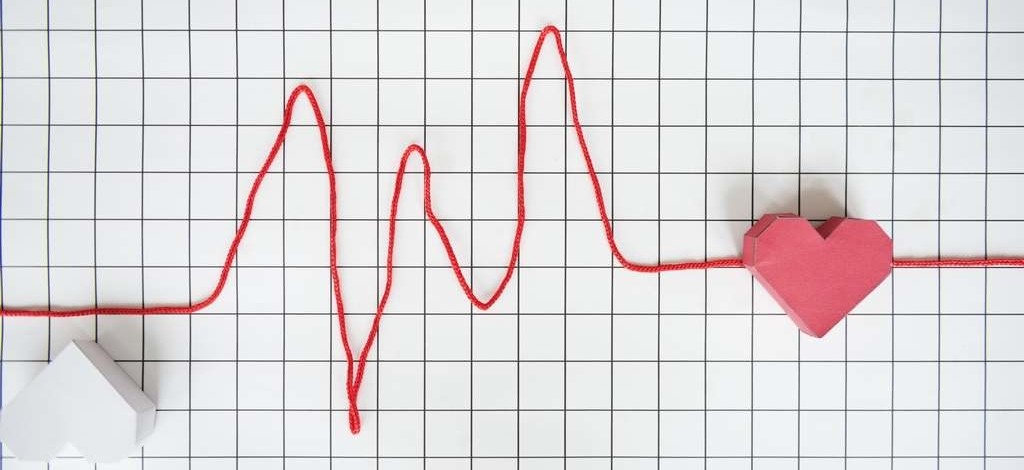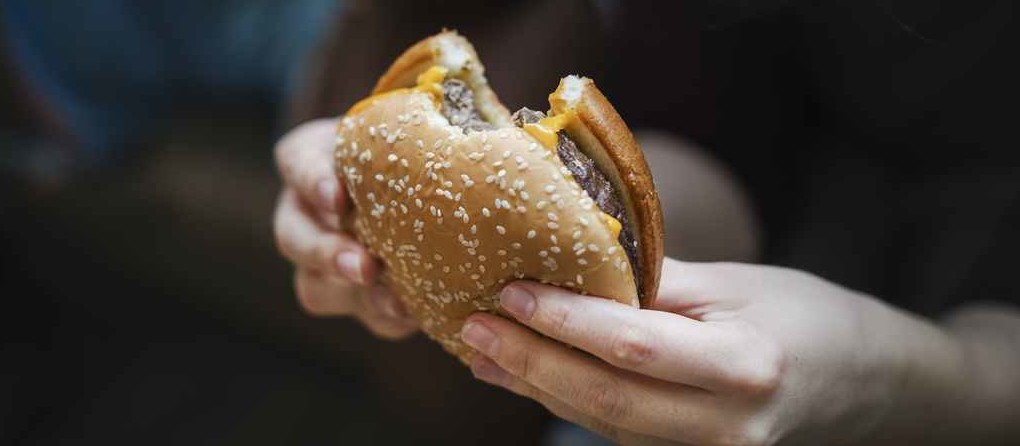High Blood pressure: Many people associate high blood pressure with unhealthy eating habits, such as obesity, eating fried food, staying indoors or drinking too much alcohol. Eating fat and alcohol can indeed cause your blood pressure to rise, but what many people don’t know is that stress can also have quite an impact on your blood pressure. Most people also don’t know how often high blood pressure actually occurs.
As many as 27% of all adults between 20 and 69 years old nowadays suffer from hypertension. And that’s not at all strange when you consider the circumstances under which we humans live these days. Many people live a rushed life full of stress. We often dismiss such a lifestyle as normal, something we have to get used to. But man is not at all made to constantly suffer from enormous feelings of stress.
Natural reactions of the body
Stress is actually a very natural reaction of your body. It helps you to react quickly and stay alert in dangerous situations. I’m sure you can imagine that this came in handy in centuries past. If, for example, you were attacked by a predator, the stress hormones allowed you to sprint away extra quickly to escape the danger. However, these stress moments were usually short-lived. As soon as the danger had passed, rest returned to the body. And that was a good thing. Prolonged or severe stress can cause you to have problems with your blood pressure.
In this article we will tell you exactly what high blood pressure is, to what extent stress affects our blood pressure and of course we will also give you a few tips to prevent high blood pressure. Nowadays, many people are permanently stressed. Deadlines at work and overcrowded schedules mean that we barely have time to relax. In fact, modern man is more at risk of high blood pressure than our prehistoric ancestors.
Can we help you?
Leave us your information and one of our coaches will contact you in 24H

How do I recognize high blood pressure?
How do you even know you have high blood pressure? High blood pressure, also known as hypertension, is not always noticeable. Many people find out by chance that their blood pressure is too high when they visit a doctor or blood bank, for example. Most people with hypertension have few complaints. Nevertheless, it is important that we are aware of the consequences that high blood pressure can have. The risk of cardiovascular disease increases considerably if you do nothing to lower your blood pressure.
If you have an extremely high blood pressure, you will often notice this. Unfortunately, it is often too late and your body has already suffered damage by then. Complaints that often occur with extremely high blood pressure are:
- Dizziness
- Nausea,
- Problems with vision (blurred vision),
- Shortness of breath,
- Pain or a tightness in the chest,
- Fatigue,
- Headaches,
- Feeling of restlessness,
- Insomnia
When you start recognizing these kinds of symptoms, often damage has already occurred to the heart or blood vessels. For this reason, it is strongly recommended that you always have your blood pressure measured by your family doctor, for example, in case of doubt. Measuring your own blood pressure can give you quite an indication, but if you are in doubt, it is wise to see a recognized general practitioner or a medical specialist.

The difference between under- and overpressure
Your blood pressure consists of two different values, namely the upper pressure and the lower pressure. Your heart ensures that your blood is pumped through your whole body. Because your heart pumps the blood around your body, there is pressure on your blood vessels. This pressure is what we understand by ‘blood pressure’. The muscles around your blood vessels regulate the pressure. If the muscles contract too much, the blood pressure rises. When the muscles are less tense, your blood pressure drops again.
High top pressure
The upper pressure, also called systole, or systolic pressure, is the highest value of a blood pressure measurement. This is the pressure measured when the heart contracts. Because the heart pumps the blood vigorously around the veins, the pressure on the vessel walls is then high.
High under pressure
The low blood pressure, also called diastole, or diastolic pressure, occurs after each heartbeat. After the heart has contracted, a moment of rest follows. The pressure on the vessel walls decreases as the heart relaxes.
Your blood pressure isn’t always the same, by the way. Actually, it fluctuates all day long. For example, when you sleep, your blood pressure is lower than when you are awake.

How do I get rid of my high blood pressure?
Too high a blood pressure can have many unpleasant consequences. As mentioned earlier, high blood pressure considerably increases the risk of cardiovascular disease. The heart has to pump harder and harder to let the blood circulate through the body. This causes the heart to grow more and more. As your heart grows, it needs more and more oxygen to keep working properly. This increases the risk of heart failure as your heart grows. In addition, high blood pressure can cause damage to your eyes and kidneys.
Movement
But how do you get rid of that high blood pressure? Exercise is one of the best ways to fight high blood pressure. It kills two birds with one stone. People who exercise regularly not only have a lower blood pressure, but also experience a lot less stress than people who don’t exercise. During exercise you create endorphins. Endorphins are a substance that gives you a pleasant feeling. So your stress level decreases considerably.
Also when you have a busy schedule it is good to look at how you could move more. Maybe you can implement some small adjustments in your life that will make you move more. For example, leave the elevator and take the stairs instead. And consider covering small distances by bike or on foot, instead of taking the car again. Moving around for about thirty minutes a day already significantly reduces the risk of high blood pressure.
Good nutrition
Also paying attention to your diet can do a lot for your blood pressure. Try to eat as little saturated fat as possible and also pay attention to your salt intake. Eating too much salt can cause your blood pressure to rise sharply. Of course, people need salt, but it’s enough to consume one to three grams of salt a day. It’s best to make sure you have a varied diet. Eat plenty of fruit and vegetables every day and also make sure you eat good fat. These are mainly found in products such as nuts and fish.

Weight also plays a major role. Also make sure you get enough water. Preferably drink unsugared drinks, such as water and tea without sugar. Just like high blood pressure, obesity is a factor that increases the risk of cardiovascular disease. The more risk factors you have, the more likely you are to suffer with your heart or your vessels. Are you a bit too heavy? Then try to lose weight. In this case, every little bit helps.
Good night’s sleep
Our lives are often busy and overcrowded. Because of this we often try to do as much as possible in one day. All that hustle and bustle can make your sleep not optimal. Therefore, try to make sure that you take the time to get a good night’s sleep. It is best not to do anything at all about an hour before you want to go to sleep. Put away all mobile phones and laptops and do something relaxing. Read a book, for example, or schedule a meditation session. A hot bath can also help you fall asleep faster.
Watching television, using an app or sending an e-mail is not a good plan: those who use a device with a monitor in the hour before going to bed sleep less well than those who do not. There are two reasons for this: firstly, many monitors emit blue light. Exposure to this blue light has a negative effect on sleep. In addition, the brain remains busy processing all kinds of stimuli when you are busy with your phone, tablet or laptop.

In short: stress has a major influence on your blood pressure. Therefore, try to live a healthy life and reduce stress. The best way to do this is to watch your food and keep moving. Do you suspect that you have high blood pressure? Then have this checked by your doctor, so that you know where you stand.

Training and coaching
Milltain provides training and coaching for private individuals and organisations. Our team consists of 35 coaches and trainers who have now helped thousands of people struggling with stress and burnouts.
Milltain for private individuals:
Are you stuck in life because of stress or a burnout? We developed an effective online program that is fully focused on the complete recovery from a burnout. More than 2000 people have successfully completed this training!
Movement and nature play prominent roles in this training. Recovery is a process that contains peaks and troughs, and that’s something we know all about. Our highly experienced coaches provide you with active support.
Learn more: Stress and burnout coaching
Stress & burnout coaching; for 100% recovery!
Reducing stress and recovering from burnout is simply incredibly difficult. The coaches at Meulenberg Training & Coaching understand exactly what you are going through and know how tough it can be. They have often experienced it themselves! With their years of experience and expertise, they are ready to help you step by step toward a full recovery. The results of our one-on-one coaching and absenteeism training will benefit you for a lifetime!






